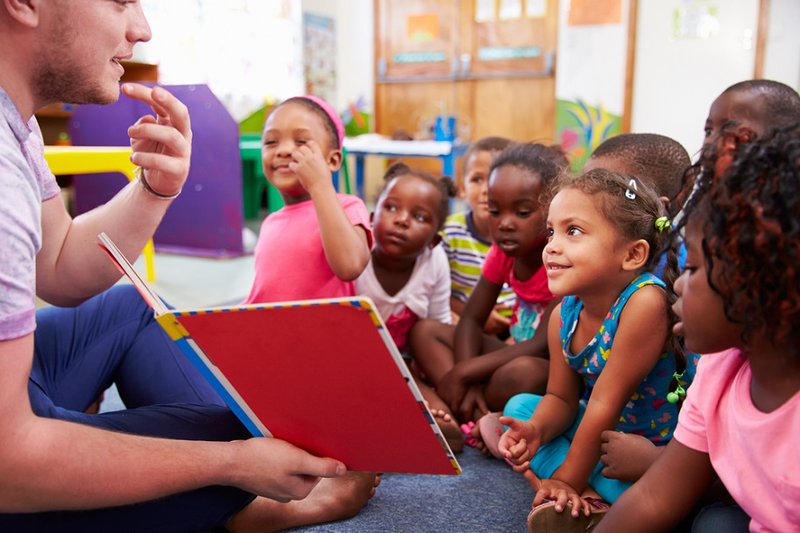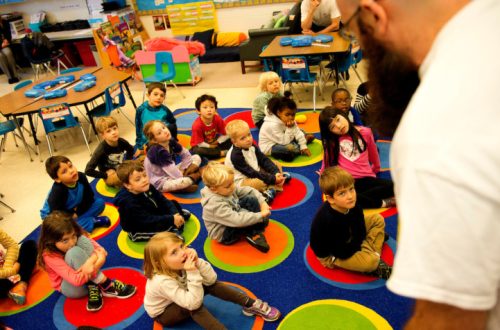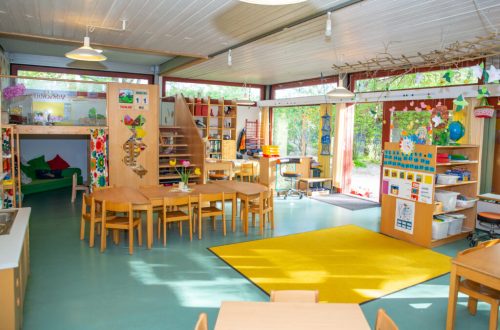
What Is A Kindergarten Screening
A kindergarten screening is a process by which schools determine whether or not a child is ready to attend kindergarten. This process typically includes a review of the child’s academic, social, and emotional development.The academic component of kindergarten screenings typically includes an assessment of a child’s readiness in reading, writing, and math. Schools often use standardized tests to measure a child’s academic progress.The social and emotional component of kindergarten screenings typically includes an assessment of a child’s readiness in interacting with others, following directions, and managing emotions. Schools often use questionnaires or interviews to gather this information.Some schools also conduct health screenings as part of the kindergarten screening process. This may include screenings for vision and hearing, as well as screenings for dental health.The results of a kindergarten screening can help schools determine how to best support a child’s development and whether or not he or she is ready for kindergarten. If a child is not ready for kindergarten, the school may recommend a pre-kindergarten program or other services to help the child prepare for kindergarten.
Is kindergarten screening mandatory in MA?
In Massachusetts, is kindergarten screening mandatory?The short answer is no. While kindergarten screening is not mandatory in Massachusetts, it is highly recommended. All children who are five years old are required to attend kindergarten, so it is important to make sure that they are ready for the academic and social challenges that come with attending school.Kindergarten screening is a process that helps educators and parents determine if a child is ready for kindergarten. The screening process typically includes a review of the child’s academic skills, social skills, and physical abilities. If a child is not ready for kindergarten, the screening process can help identify the areas in which the child needs improvement.There are a number of benefits to kindergarten screening. First, it can help ensure that all children have a successful transition to kindergarten. Second, it can help identify any learning disabilities or developmental delays that a child may have. Third, it can help parents understand the challenges that their child may face in kindergarten. Finally, it can help educators better meet the needs of each child in their classroom.If you have any questions about kindergarten screening, please contact your local school district.
What is kindergarten screening in Ohio?
Kindergarten screening in Ohio is a process that school districts use to determine whether or not a child is ready to attend kindergarten. The screening process typically includes a review of the child’s academic, social, and emotional development. If a child is not ready to attend kindergarten, the school district may provide services to help the child prepare for kindergarten.
What is the purpose of screening in early childhood education?
Screening is a process of assessing a child’s development and potential problems at an early age. It is used to identify children who may need extra help and to provide services as early as possible.Screening is important because it can help identify developmental problems early on, before they become more difficult to treat. Early identification allows for early intervention, which can help improve a child’s development and future prospects.There are a number of different screening tests that can be used in early childhood education. Some of the most common tests include:-The Bayley Scales of Infant and Toddler Development -The Denver II -The McCarthy Scales of Children’s AbilitiesThese tests are designed to assess a child’s development in a number of key areas, including physical development, cognitive development, language development, and social-emotional development.Screening is also used to identify children who may be at risk for developmental delays or disabilities. Children who are identified as being at risk may be referred for further assessment and treatment.Screening is an important part of early childhood education. It can help identify developmental problems early on, and it can also help identify children who are at risk for developmental delays or disabilities.
What assessment is used for kindergarten?
There are many different assessments that can be used for kindergarten students. One of the most popular assessments is the Dynamic Indicators of Basic Early Literacy Skills (DIBELS). This assessment is used to measure a student’s progress in early literacy skills. It is designed to be used in Grades K-6, but can be used with older students who are still working on basic literacy skills. The DIBELS assessment consists of a series of tasks that measure six areas of literacy: Phonemic Awareness, Phonics, Fluency, Vocabulary, Comprehension, and Literacy Reasoning.Other assessments that can be used with kindergarten students include the Brigance Inventory of Early Development, the Stanford Achievement Test, and the Iowa Tests of Basic Skills. Each of these assessments is designed to measure different aspects of a student’s development, and can be used to help educators identify students who may need additional help in specific areas.
What are the 5 key skills and behaviors child should have on entering kindergarten?
As a parent, you want to make sure that your child is ready for kindergarten. But what are the key skills and behaviors that your child should have?According to Education.com, the five key skills and behaviors that a child should have on entering kindergarten are:1. IndependenceKindergarten is a time when children start to become more independent. They learn how to do things on their own, such as dressing themselves, using the bathroom, and packing up their belongings.2. CooperationIn kindergarten, children learn how to work together in groups. They learn how to take turns, share, and resolve conflicts.3. CommunicationKindergarteners learn how to communicate with others. They learn how to express their thoughts and feelings, and how to listen to others.4. LiteracyIn kindergarten, children learn the basics of reading and writing. They learn how to read and write simple sentences, and how to identify letters and words.5. MathIn kindergarten, children learn the basics of math. They learn how to count, add, and subtract. They also learn about shapes and patterns.
Are you ready for kindergarten checklist?
A child’s education is of utmost importance, and starting kindergarten is a big step. As a parent, you want to make sure your child is ready for this next step. Use the checklist below to help you determine if your child is ready for kindergarten.__ Is your child able to listen and follow directions? __ Can your child stay on task for about 15 minutes? __ Can your child stay organized and keep track of belongings? __ Does your child know how to count to 10 and say the alphabet? __ Can your child read some basic words? __ Is your child potty trained? __ Is your child emotionally ready for kindergarten?If your child is not quite ready for kindergarten, don’t worry. There are plenty of things you can do to help him or her prepare. Talk to your child’s teacher about what he or she can do in the classroom to help your child get ready. You can also continue working on skills at home. For example, practice counting, reading, and following directions.Starting kindergarten is a big step, but with a little preparation, your child will be ready for the challenge.
How do I prepare myself for kindergarten?
If your child is about to start kindergarten, there are a few things you can do to help them prepare. Here are some tips:1. Talk to your child about what they can expect. Kindergarten is a new and exciting experience, and it’s important to talk to your child about what they can expect. Explain that they will be learning new things, making new friends, and doing fun activities.2. Help them get ready for school. There are a few things your child can do to get ready for kindergarten. For example, they can start practicing how to write their name, learn how to count to 100, and learn the alphabet.3. Get them excited about school. It’s important for your child to be excited about starting school. You can do this by reading stories about kindergarten, talking about all the fun things they will do at school, and letting them meet their teacher.4. Prepare them for separation. Kindergarten is a big step for kids, and it’s natural for them to feel a little anxious about being away from home. Help your child prepare for separation by explaining that they will be coming home every day and that you will always be there to pick them up. You can also talk about the things they will do at school, like nap time and play time.5. Encourage them. Kindergarten is a challenging and exciting experience, and your child will need your encouragement along the way. Be there to support them when they struggle and praise them when they succeed.
Are children required to go to kindergarten in Massachusetts?
In Massachusetts, children are not required to attend kindergarten. However, many parents choose to enroll their children in kindergarten in order to give them a strong foundation for their education.Kindergarten is a great opportunity for children to learn important skills such as how to read, write, and do math. In addition, kindergarten helps children develop social skills and learn about how to behave in a classroom setting.If you are considering enrolling your child in kindergarten, there are a number of factors to consider. First, you need to decide if your child is ready for kindergarten. Some children are ready to start kindergarten at age 5, while others may need a little more time to develop the skills they need.You also need to think about your child’s schedule and whether he or she will be able to attend kindergarten full-time or part-time. Some schools offer both full-time and part-time kindergarten programs.If you decide that kindergarten is right for your child, the next step is to find the right school. There are a number of great schools in Massachusetts, so be sure to do your research and find one that is a good fit for your child.
Is a full day of kindergarten mandatory in Massachusetts?
In Massachusetts, kindergarten is not mandatory, but a full day of kindergarten is.All children in Massachusetts are required to attend kindergarten for a full day, five days a week.According to the Massachusetts Department of Elementary and Secondary Education, “There is no minimum age for kindergarten. However, all children must attend a full day, five days a week.”Parents in Massachusetts may choose to send their children to part-day kindergarten instead of a full-day program, but they are not required to do so.There are many benefits to attending a full-day kindergarten program. A full day of kindergarten provides children with more opportunities to learn and grow academically, socially, and emotionally.Studies have shown that students who attend a full-day kindergarten program are more likely to be successful in elementary school and beyond.If you have any questions about kindergarten in Massachusetts, please contact the Massachusetts Department of Elementary and Secondary Education.
What is assessment test for kindergarten?
What is an assessment test for kindergarten?An assessment test for kindergarten is a test that is used to measure a student’s academic progress. This test can be used to help identify any areas that the student may need assistance in and can help teachers to create individualized learning plans for each student.There are a number of different types of assessment tests that can be used in kindergarten, including achievement tests, diagnostic tests, and placement tests. Achievement tests measure how well a student has mastered specific skills or knowledge, diagnostic tests help to identify specific areas of weakness, and placement tests help to determine the level of education that a student is ready for.Why is it important to give an assessment test to kindergarten students?Assessment tests are important for kindergarten students because they help to measure a student’s academic progress and identify any areas that may need assistance. These tests can help to ensure that each student receives the individualized help that they need in order to be successful in school.
At what age is school mandatory in Massachusetts?
In Massachusetts, school is mandatory for children ages 6 to 16. However, there are some exceptions. For example, children who are enrolled in a full-time day care or nursery program are not required to attend school.
Additionally, children who are physically or mentally unable to attend school may be excused from attendance.
What are the requirements for kindergarten in Ohio?
In the state of Ohio, there are several requirements that students must meet in order to be eligible to enroll in kindergarten.In order to be eligible, students must be five years old on or before September 30th of the school year for which they are enrolling.Additionally, students must be residents of Ohio and have attended an Ohio preschool program or have been screened and found to be developmentally ready for kindergarten by a licensed professional.In order to be admitted to kindergarten, students must also provide proof of their identity, age, and residency.For more information on the requirements for kindergarten in Ohio, visit the website of the Ohio Department of Education.
What is kindergarten assessment test?
What is kindergarten assessment test?Kindergarten assessment tests are designed to measure a child’s academic skills and knowledge in order to identify any areas of weakness that may need additional assistance. In the United States, kindergarten assessment tests are administered to all students in public schools in order to comply with the No Child Left Behind Act.Most kindergarten assessment tests are in the form of standardized tests, which means that they are administered and scored in a consistent manner across all schools. The most common type of kindergarten assessment test is the norm-referenced test, which compares the test scores of individual students to the scores of other students in the same grade.The most commonly used kindergarten assessment tests in the United States include the Iowa Tests of Basic Skills (ITBS) and the Stanford Achievement Test (SAT). These tests are typically administered to students in grades K-2, and measure a student’s ability to read, write, and perform basic math skills.
How do I skip kindergarten in Ohio?
In Ohio, there is no specific law that allows or prohibits kindergarten skipping. However, the decision to do so should be based on the child’s individual needs and circumstances.There are a few things to consider before deciding to skip kindergarten. One is that skipping kindergarten may put the child at a disadvantage when it comes to social and academic skills. Additionally, kindergarten is a required grade in Ohio, so parents who choose to have their child skip it may have to provide a justification to the school district.If you decide to have your child skip kindergarten, there are a few things you can do to help them prepare. One is to have them do some grade-level work, such as reading simple books, counting, and writing their name. You can also have them attend a preschool or pre-k program to help them prepare for kindergarten.Ultimately, the decision to skip kindergarten should be based on the child’s individual needs and circumstances. If you have any questions or concerns, be sure to speak with your child’s teacher or school district.
Can my child test into kindergarten early in Ohio?
In Ohio, parents can request that their child be tested to see if they are ready for kindergarten early. If the child passes the test, they can be allowed to start kindergarten early. There are a few things parents need to know about this process.The first thing parents need to know is that there is no guarantee their child will be able to start kindergarten early even if they pass the test. The school district has the final say on whether or not the child can start kindergarten early.Parents should also be aware that there is a cost associated with testing their child for kindergarten early. The cost ranges from $25 to $50, depending on the school district.There are a few different tests that can be used to test a child for kindergarten early. The most common test is the Early Childhood Inventory-3 (ECI-3). This test is designed to measure a child’s skills in areas such as language, math, and social skills.If a child passes the test, the school district will usually create a “Kindergarten Readiness Plan” for the child. This plan will outline the goals the child needs to achieve in order to be ready for kindergarten.The bottom line is that parents can test their child for kindergarten early in Ohio, but there is no guarantee their child will be able to start kindergarten early. There is also a cost associated with the test.
What is the best reason for screening children?
Screening children for health problems is important for their well-being. There are many reasons to screen children, but the best reason is to identify health problems early so that they can be treated.Screening tests can help identify health problems in children before they cause symptoms. Early identification allows for early treatment, which can improve the child’s health and outcome. Screening can also help prevent health problems from developing.Screening tests can also help parents and caregivers understand the health of their child. This information can help parents make decisions about their child’s care.Screening tests are typically safe and easy to do. They are also often covered by insurance.There are many different types of screening tests. Some common tests include vision and hearing tests, screenings for developmental delays, and screenings for health problems such as lead poisoning.If you are concerned about your child’s health, talk to your doctor about which screenings are appropriate for your child.
What is the importance of developmental screening?
developmental screeningWhat is the importance of developmental screening?Developmental screening is important because it can identify children who may have developmental delays or disabilities. By identifying these delays early, children can receive the help they need to reach their full potential.developmental screeningWhat is the importance of developmental screening?Developmental screening is important because it can identify children who may have developmental delays or disabilities. By identifying these delays early, children can receive the help they need to reach their full potential.developmental screeningWhat is the importance of developmental screening?Developmental screening is important because it can identify children who may have developmental delays or disabilities. By identifying these delays early, children can receive the help they need to reach their full potential.
What is the purpose of screening and assessment tools?
Screening and assessment tools are used to identify people who may need additional help or support. They can help to identify potential problems early on, so that interventions can be put in place before they become more serious.Screening tools are used to assess the general health of a population or a specific demographic. They can be used to identify people who are at risk of developing a particular condition, or who may need additional support.Assessment tools are used to assess the specific needs of an individual. They can help to identify areas in which the individual may need additional help or support, and can help to guide the development of a tailored care plan.
What is an early screening?
An early screening is a test done to detect a disease or condition before any symptoms appear. The goal of early screening is to identify health problems early, when they are easier to treat.There are many types of early screenings. Some common early screenings include screenings for cancer, heart disease, and diabetes. Most screenings are offered as part of routine health check-ups.Some people may need to get additional screenings based on their age, health history, or family history. Talk to your doctor about what screenings are recommended for you.Screenings can help to find health problems early, when they are easier to treat. Early treatment can help to prevent health problems from getting worse. It can also improve your chances of successful treatment.If you are concerned about a health problem, talk to your doctor. They can help you decide if a screening is right for you.




